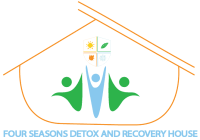Childhood trauma and addiction are deeply intertwined. Adverse experiences during formative years can significantly increase the risk of substance abuse later in life. Understanding this connection is crucial for developing effective treatment strategies and supporting individuals on their journey to recovery.
Understanding Childhood Trauma
Childhood trauma refers to experiences that are emotionally painful or distressing. These experiences have a lasting impact on an individual’s mental and physical health. Types of childhood trauma include physical abuse, emotional abuse, sexual abuse, neglect, and exposure to violence. These adverse childhood experiences (ACEs) disrupt normal development and lead to long-term consequences. Nearly two-thirds of adults report experiencing at least one ACE, highlighting how common childhood trauma is.
Trauma can be either acute or chronic. Acute trauma results from a single incident, while chronic trauma is repeated and prolonged, such as domestic violence or abuse. Both types can significantly affect a child’s development and long-term well-being.
The Link Between Childhood Trauma and Addiction
Biological and Psychological Mechanisms
Trauma significantly alters brain function and development. It affects the brain’s stress response system, leading to hyperarousal and dysregulated stress responses. This makes individuals more vulnerable to using substances as a way to manage heightened anxiety and emotional pain. The self-medication hypothesis suggests that people use drugs and alcohol to numb or escape the distress caused by trauma.
Self-Medication Hypothesis
Individuals who have experienced trauma often turn to substances to cope with their emotional and psychological pain. This behavior leads to a cycle of addiction. The temporary relief provided by substances reinforces continued use despite negative consequences. This pattern is common among those with post-traumatic stress disorder (PTSD). For them, substance use becomes a maladaptive coping mechanism.
Impact of Trauma on Addiction Development
PTSD and Substance Abuse
Research shows a strong link between PTSD and substance use disorders. About 59% of people with PTSD struggle with substance abuse. They use drugs or alcohol to manage symptoms like hypervigilance and intrusive memories. The earlier the trauma occurs, the higher the risk of developing addiction issues later in life.
Early-Onset Addiction
Childhood trauma can lead to early-onset addiction. Affected individuals begin using substances at a younger age. This early exposure increases the likelihood of developing severe addiction problems and associated health issues as they age. Addressing these issues early can prevent long-term damage.
The effects of trauma can also extend to other behaviors. For instance, individuals might develop process addictions, such as gambling, internet gaming, or shopping, as coping mechanisms. These behaviors, like substance abuse, provide temporary relief but ultimately exacerbate the underlying issues.
Trauma-Informed Approaches to Addiction Treatment
Trauma-Informed Care
Trauma-informed care is essential for treating individuals with a history of childhood trauma and addiction. This approach involves understanding the impact of trauma on behavior and providing care that addresses these effects. Therapy models like trauma-focused cognitive-behavioral therapy (TF-CBT) and eye movement desensitization and reprocessing (EMDR) are effective. They help individuals process and heal from trauma, reducing their reliance on substances.
Dual Diagnosis Treatment
Many individuals with childhood trauma also suffer from co-occurring mental health issues. These include depression and anxiety. Dual diagnosis treatment addresses both substance abuse and mental health conditions simultaneously. This comprehensive approach is crucial for achieving long-term recovery. It ensures all aspects of a person’s health are addressed.
Integrating care for physical health is also important. For example, luxury detox programs provide an environment where individuals can start their recovery in a comfortable and supportive setting, addressing both physical and emotional needs.
Healing and Recovery Strategies
Building Resilience
Building resilience is key to overcoming the effects of childhood trauma and reducing the risk of addiction. Techniques like mindfulness, stress management, and healthy coping mechanisms such as exercise and creative outlets can help. These strategies enable individuals to manage their emotions and stress without resorting to substance use.
Developing resilience can also involve learning how to talk to an alcoholic loved one to support their recovery process. Effective communication can provide the necessary support for someone struggling with addiction.
Social Support and Connection
A strong social support network is vital for recovery. Participating in support groups, group therapy, and peer support provides a sense of belonging. It also reduces feelings of isolation. Sharing experiences with others who have faced similar challenges can be incredibly healing and empowering.
Programs like faith-based drug and alcohol rehab offer spiritual guidance and community support, which can be particularly beneficial for some individuals in recovery.
Prevention and Early Intervention
Early intervention and prevention programs are crucial for mitigating the long-term effects of trauma. These programs focus on identifying and addressing trauma early. They provide support and resources to help individuals develop healthy coping strategies and avoid substance abuse. Learning about the number one drug used by teens can help parents and educators address substance use early and effectively.
Understanding the 6 stages of alcohol recovery can also provide a roadmap for individuals and their families, helping them navigate the complex process of recovery.
Conclusion
Understanding the connection between childhood trauma and addiction is essential. This knowledge helps develop effective treatment and prevention strategies. By addressing the underlying trauma, building resilience, and providing comprehensive care, we can help individuals heal from their past and break free from the cycle of addiction. If you or someone you know is struggling, resources like faith-based drug and alcohol rehab and luxury detox are available to help. Mental health and substance abuse treatment centers are crucial in these cases.
FAQs
Q: What is childhood trauma? A: Childhood trauma refers to emotionally painful or distressing experiences that have long-term effects on an individual’s mental and physical health. Examples include physical abuse, emotional abuse, sexual abuse, neglect, and exposure to violence.
Q: How does childhood trauma lead to addiction? A: Childhood trauma can alter brain function and development, leading to a dysregulated stress response. Individuals may turn to substances as a way to manage their heightened anxiety and emotional pain, resulting in a cycle of addiction.
Q: What is trauma-informed care? A: Trauma-informed care is an approach to treatment that acknowledges the impact of trauma on behavior and provides care that addresses these effects. It involves creating a safe and supportive environment for healing.
Q: What are the benefits of dual diagnosis treatment? A: Dual diagnosis treatment addresses both substance abuse and co-occurring mental health conditions simultaneously. This comprehensive approach is crucial for achieving long-term recovery and ensuring all aspects of a person’s health are addressed.
Q: How can resilience be built in individuals who have experienced childhood trauma? A: Resilience can be built through techniques such as mindfulness, stress management, and healthy coping mechanisms like exercise and creative outlets. Developing a strong social support network is also important.
Q: Why is early intervention important for individuals who have experienced childhood trauma? A: Early intervention can help mitigate the long-term effects of trauma by providing support and resources to develop healthy coping strategies and avoid substance abuse. This proactive approach can lead to better outcomes.
In conclusion, addressing childhood trauma and addiction requires a comprehensive approach. By understanding the link between the two, we can create better support systems and treatment plans to help those affected.



